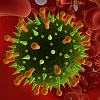IPad Apps

Rocks and Minerals

Structure of earth

Simple Machines

Magnets

Animal Adaptations

Plant Adaptations

Diseases

Solar System
Welcome to FunAppSchool

IPad and IPhone Apps
Educational Games for IPad and IPhone. English Grammar and Science Apps for Elementary and Middle School Kids.
Alexander Fleming
Biologist, discovered penicillin
If you have ever been prescribed an antibiotic for a bacterial infection, and you wondered why the medicine helped you get better fast, the answer is penicillin.
It was the famous Scottish biologist, Sir Alexander Fleming, who accidentally discovered this substance.
Fleming was born in a small farm in Scotland on August 6th 1881. He was the seventh child of his parents and lived on the family farm until he was 14 years old.
He lost his father at that time, and moved to London with his three eldest brothers and sister.
He studied at the Polytechnic School and joined the Scottish army in with his elder brother Tom who was a doctor.
Fleming was encouraged to go into business after the war ended, and he did so for a little while even though he was not happy doing it.
When his uncle died and left all of them with 250 pounds each (a lot of money during that time) Tom Fleming encouraged his little brother to study medicine.
His grades showed that medicine was the area for him, and he won a scholarship to St Mary’s Hospital Medical School in London.
He started practicing surgery here and studied immunology (a branch of medicine that studies the human body’s defence system against infectious diseases, and develops medicine to protect the body).
He continued at St Mary’s long after he qualified as a doctor, and continued to lecture at the hospital in the area of infectious diseases for almost 9 years.
He married a trained nurse, Sarah Marion McElroy of Ireland soon after that.
Fleming joined the Royal Army Medical Corp, served through World War I, and then returned to his university after which he was made Professor of Bacteriology at the University of London.
His experience in World War, completely changed him, and marked the beginning of his contributions that shaped the world of medicine.
He realized that many soldiers died not because of the infected wounds from battle but because of the medicines given to cure them.
This got him thinking and he realized that the medicine they were giving only worked well to stop infection on the surface of the wound, but it did not help any infection deep inside the wound.
He got working on a few experiments that led him to make an accidental discovery that would forever change the journey of medicine.
A bacterial mould in one of his experiments was growing and he noticed that the bacteria around the mold were dying. This was his discovery of penicillin, which he made in 1928.
He tested his discovery first on animals, but made sure not to harm even one of them, because he was an animal lover, growing up on a farm most of his life.
This medicine was a miracle drug that cured diseases like scarlet fever, pneumonia, meningitis and other diseases that people used to commonly die from during that time.
But it was not until World War II that the world really saw how great this new medicine was, because it saved many lives unlike in the previous world war.
Fleming could not carry on his further experiments with penicillin because his chemistry skills were not very good. Howard Florey and Ernst Boris Chain continued Fleming’s work and developed penicillin into an antibiotic.
Alexander Fleming was honoured by the Queen of England in a knighting ceremony in 1944, and is known today as Sir Alexander Fleming.
He was awarded the Nobel Prize for medicine and physiology, which he shared with Florey and Chain in 1945.
Sir Alexander Fleming sadly passed away in 1955 at 73 years, of a heart attack in his home in London and his buried at the St Paul’s Cathedral.
Sir Alexander Fleming’s discovery and the later work of Florey and Chain brought a new face to curing bacterial infections and today this simple treatment cures many diseases that once could not be cured.







